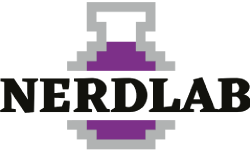Podcast: Play in new window | Download
Subscribe: Google Podcasts | Spotify | Amazon Music | RSS
Connect with the Nerdlab Community:
Join the Nerdlab Discord
Join the Nerdlab Community
Nerdlab Website
Nerdlab Facebook Page
Nerdlab on Twitter
Nerdlab on Instagram
Hello fellow adventurers and welcome to the Nerdlab – Where we transform our gaming passion into incredible game designs and learn how to nerd like a boss.
My name is Marvin and I am an ambitious game designer on my quest to develop a co-operative fantasy card game.
For this podcast, my vision is to take you with me on this exciting journey. Together we will explore the secrets of different game mechanics and reach the next level as a game designer.
I don’t know if it’s just me, but I always make the most progress with the design of my game when I’m about to do a playtest. Then I have the necessary pressure to change something, to push something forward and to finish something in order to have at least a playable version I can bring to the table. Between two playtest sessions there are always longer phases in which I don’t change anything or not much about my game. Often I think a lot about different possibilities, but most of the time these ideas remain as theoretical concepts in my head or on my whiteboard. Or maybe in some Excel spreadsheet. That’s why I today want to think about how I can improve my process to have less downtime, to get more playtests in and in the end to iterate faster.
Iteration is something we do in all areas of life. Not just in game design. We try something and then we change based on the feedback we get.
Everything should work agile these days. Projects want to be agile, companies want to be agile. Time to market should be shortened, fail forward, minimal viable product. All these are descriptions and phrases for the same phenomenon.
Reduce the time between developing something and using something. This can be a piece of software or a game. It doesn’t matter. You want to get feedback on something as soon as possible.
Topics of this show:
- What does iteration mean in game design?
- What can we learn from agile project management as game designers?
- How to improve the your card prototyping cycle:
- What you need in order to get to a bi-weekly sprint cycle:
- User Stories / Experiences
- Task Backlog & Most important task identification
- Super lean prototype creation process
- Fixed playtesting sessions



Leave A Comment
You must be logged in to post a comment.